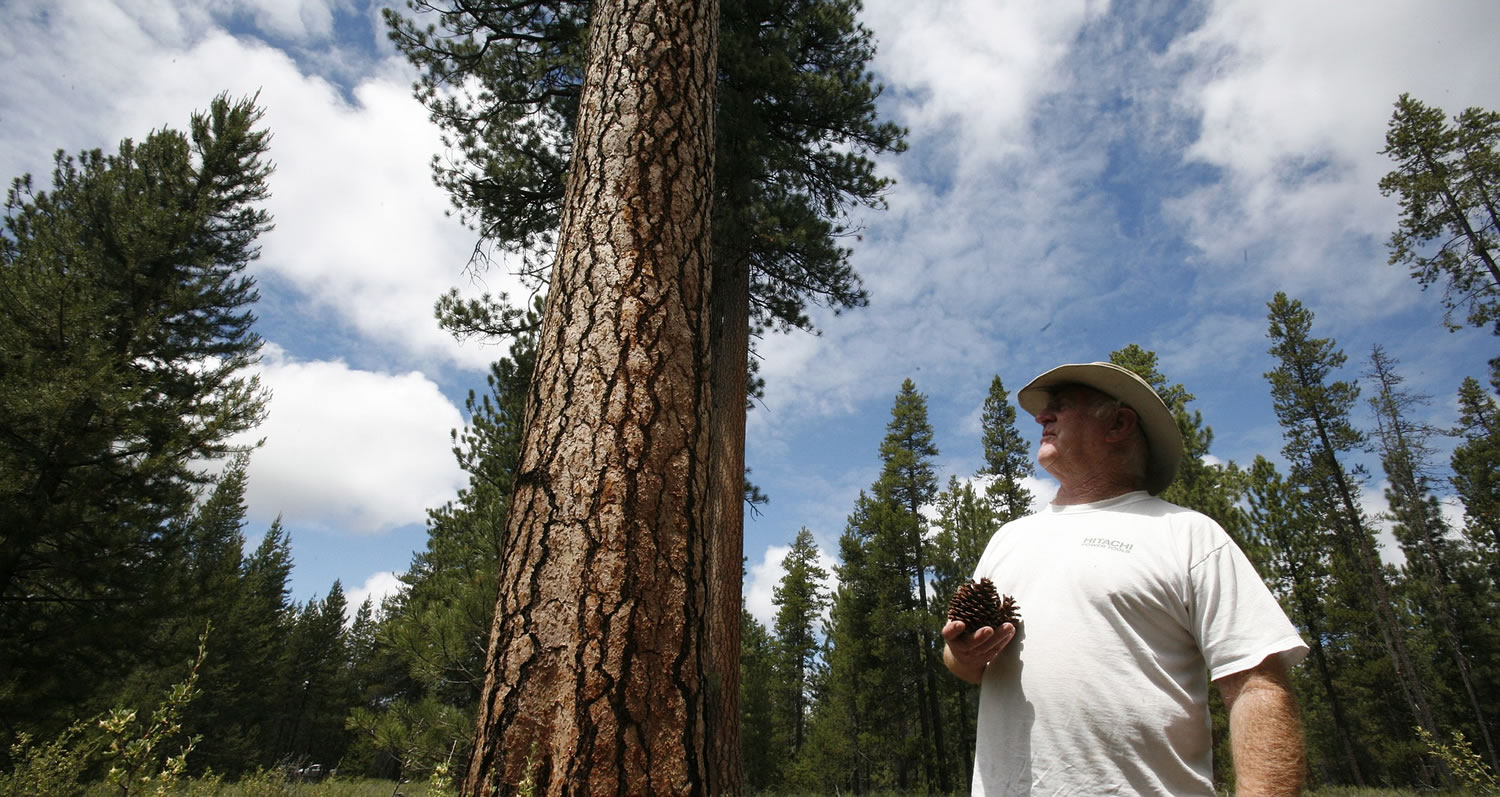BEND, Ore. — Driving from his job in north Bend to his home south of La Pine, John Scoggin stops to pick up ponderosa pine cones in the Deschutes National Forest.
While he enjoys doing so, he said he does it for dollars as much as for fun. He can load up four or five 42-gallon trash bags full of ponderosa pine cones in a short detour. He then sells them for $5 per sack to a pine cone buyer in La Pine, earning him $20 to $25.
“That’s my gas to and from work,” said Scoggin, 67, who works part time assembling display items and customer orders at Lowe’s.
Scoggin is not alone in gathering pine cones. In recent years, cones have become a cash crop in the Deschutes. Forest officials sell permits to small collectors like Scoggin and crafts contracts, similar to those for timber sales, to larger operations, said Ryan Grim, special forest products forester for the Bend-Fort Rock District of the Deschutes.




